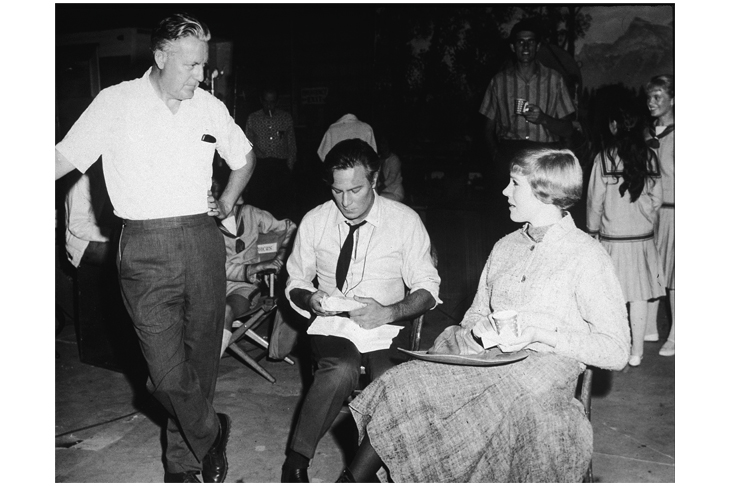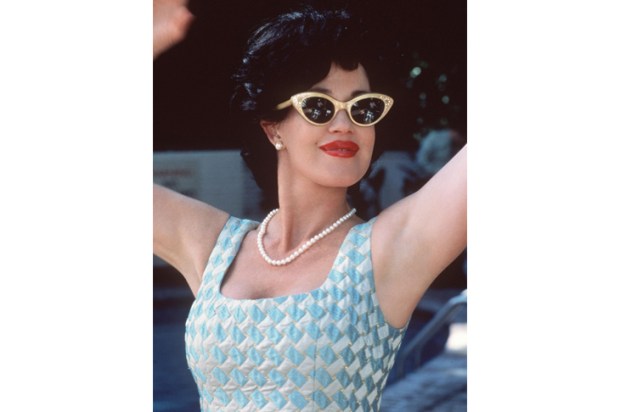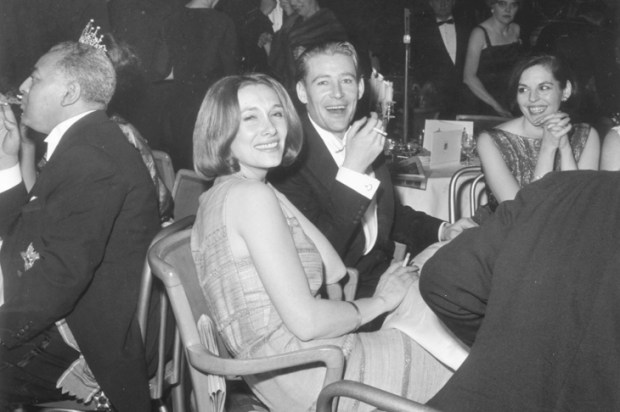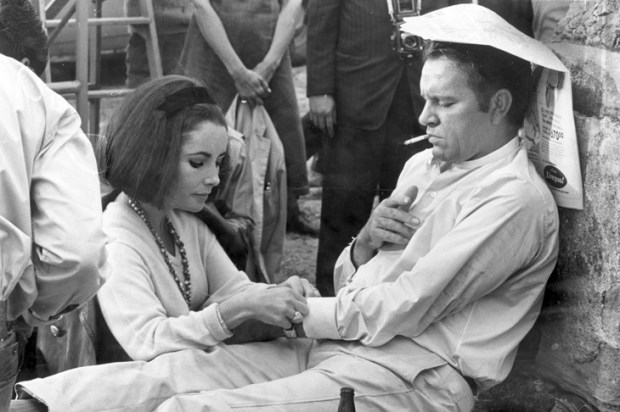A few weeks ago that great Canadian actor Christopher Plummer died. Everyone knows him as Captain Von Trapp opposite Julie Andrews in The Sound of Music but he was in fact one of the greater actors on earth and he was not an actor who let his Hollywood career stand in the way of his stage work and this often involved the classical repertoire. Indeed at the time of his death he was contemplating playing King Lear again, this time on television for Des McAnuff the man who did Jersey Boys.
But Plummer did everything. YouTube has the BBC Hamlet he did in 1964, for Shakespeare’s 400th birthday, which still has an extraordinary authority with its insinuating wit, its balance of introspective music and mordant mockery. You’ll also be able to spot a posh-voiced Michael Caine as Horatio and that piratical actor Robert Shaw (of Jaws fame) as the King. The same director Philip Saville did a film of Sophocles’ Oedipus Rex with Plummer in the title role, Lilli Palmer, the great Austrian actress as his doomed wife Jocasta and Orson Welles as the blind seer Tiresias who hurls into the face of the solver of the riddle of the Sphinx: ‘You are the accursed polluter of the land.’ I used to listen regularly to a spoken word recording of Plummer’s Oedipus with his not quite standard English voice, its remote undertone of Canadian, under Neville Marriner’s baton, as it soared through the blank verse of the Paul Roche translation.
If you want Plummer plus music, listen to his integral performance of the great Henry V speeches that intersperse the music William Walton wrote for Olivier’s 1994 production: Plummer’s rendition of all that ‘Once more unto the breach’ stuff is at least equal to Olivier’s.
Plummer played some clerical eminence in the TV adaptation of Colleen McCullough’s The Thorn Birds but one of his most notable associations with Australia was when he partnered the great Australian actress Zoe Caldwell in Antony and Cleopatra at Stratford, Ontario. He said she was the greatest Queen of the Nile he’d ever encountered which is high praise for a man who could act most notable actors off the stage.
I can still hear the tone of appalled wonderment in the voice of James Earl Jones – ‘Ah, Chris. Chris did what Chris does’ – in his bottomless deep African American voice when he told me what it was like to play Othello to the Iago of Christopher Plummer. The villainous ancient who destroys Othello out of his belief in the ‘divinity of hell’ is the supreme scene-stealing role but what a duo they must have made in that exotic heartbreaker of a play with its sweeping poetry of race and desecration.
Anyone who wants sweeping poetry and the sorrow and pity of war should make their way to the Fairfield Amphitheatre on March 14 where that great epic poem The Iliad of Homer is being read by Helen Morse, Jack Charles and Sigrid Thornton among others, in the bluestone theatre space designed by my dear dead friend Peter Corrigan to reproduce the flawless acoustics of the amphitheatre of Epidaurus.
I always imagine Achilles as the young Peter O’Toole because it was his quicksilver voice I first heard when I encountered Christopher Logue’s miraculous modern adaptation: ‘King, / I have been a fool. / The arid bliss self-righteousness provokes / addled my heart.’ And a lifetime later he played Priam, the old Trojan King, in Troy. Remember how Priam says to Achilles, ‘I have done what no man ever did. I have lifted my hand in friendship to the killer of my son.’ And the slaughterer of Hector says, ‘They say, old man, that you too were happy once.’
Plummer stood in for O’Toole as Henry II in Anouilh’s Becket. Rose Byrne, also in Troy, did Euripides’ Medea last year in New York.
In his Bristol Old Vic days, Peter O’Toole was a revelation to the young Tom Stoppard. On 25 February Audible released a swag of Stoppard plays which includes that wonderful Indian play, In the Native State, the last performance of Dame Peggy Ashcroft the woman who had been Paul Robeson’s Desdemona 60 years before.
Got something to add? Join the discussion and comment below.
Get 10 issues for just $10
Subscribe to The Spectator Australia today for the next 10 magazine issues, plus full online access, for just $10.
You might disagree with half of it, but you’ll enjoy reading all of it. Try your first month for free, then just $2 a week for the remainder of your first year.














Comments
Don't miss out
Join the conversation with other Spectator Australia readers. Subscribe to leave a comment.
SUBSCRIBEAlready a subscriber? Log in